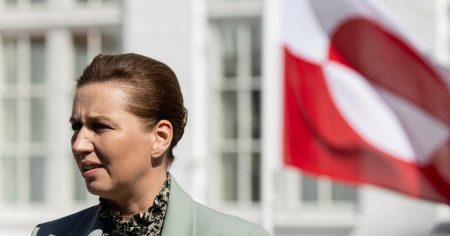The Norwegian political landscape underwent a significant shift in the past week, culminating in a cabinet reshuffle and the appointment of a new finance minister. The upheaval began with the dissolution of the governing coalition between the Labour Party (Ap) and the Centre Party (Sp) over disagreements concerning the EU’s Fourth Energy Package. This disagreement, centered around the balance between national energy sovereignty and European integration, proved irreconcilable, leading the Centre Party to withdraw from the coalition. This decision left Prime Minister Jonas Gahr Støre of the Labour Party to navigate the complexities of forming a new government amidst a backdrop of political uncertainty.
The collapse of the coalition triggered a cascade of resignations, leaving eight ministerial positions vacant. Key figures such as Defence Minister Bjørn Arild Gram, Justice Minister Emilie Enger Mehl, and Finance Minister Trygve Slagsvold Vedum, all members of the departing Centre Party, tendered their resignations. These resignations necessitated a rapid response from Prime Minister Støre to fill the vacant positions and ensure the continued functioning of the government. The resignations were formally accepted by King Harald V during a specially convened session at the Royal Palace, paving the way for the announcement of the new government composition.
The Prime Minister moved swiftly to reconstitute his cabinet, seeking to maintain stability and address the challenges arising from the government’s new minority status. While the Labour Party retains control of the government, its position is undeniably weakened by the loss of its coalition partner. Governing as a minority party will require the Labour Party to negotiate and compromise with other parties in the Storting (Norwegian parliament) to secure support for its legislative agenda. This new political reality necessitates a deft approach to policy-making and a greater emphasis on building consensus across party lines.
In a surprising turn of events, Jens Stoltenberg, former Prime Minister of Norway and outgoing Secretary General of NATO, has been appointed as the new Finance Minister. Stoltenberg, a seasoned politician with extensive experience in both domestic and international affairs, brings considerable gravitas to the role. His appointment is seen as a strategic move by Prime Minister Støre to bolster the government’s credibility and navigate the economic challenges facing the nation. Stoltenberg’s deep understanding of global financial markets and his experience in managing complex political situations will be crucial in steering Norway’s economy through a period of uncertainty.
Further appointments to the reshuffled cabinet include Tore Onshuus Sandvik, formerly the acting Minister of Climate and Environment, who is rumored to be taking over the Defence portfolio. These appointments reflect Prime Minister Støre’s efforts to assemble a competent and experienced team to address the pressing issues facing the country. The selection of individuals with diverse backgrounds and expertise underscores the government’s commitment to addressing a wide range of policy challenges, from national security to environmental sustainability.
The political realignment in Norway has created a new dynamic in the Storting, requiring the Labour Party to forge new alliances and adapt to the complexities of minority governance. The government’s ability to effectively govern and implement its agenda will depend on its capacity to build bridges with other parties and secure their support on key legislative initiatives. This new era of Norwegian politics promises to be one of negotiation and compromise, as the government seeks to maintain stability and advance its policy goals in a fragmented political landscape. The appointment of seasoned figures like Stoltenberg signals a commitment to navigating these challenges with experience and pragmatism.














